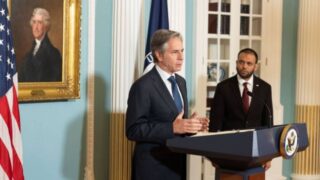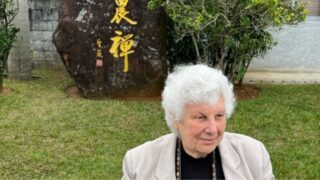The court said that resolutions by local authorities calling the Unification Church and the UPF “antisocial” are not illegal. In a similar case, the European Court of Human Rights decided differently.
by Massimo Introvigne


On February 28, 2024, the District Court of Osaka rendered a decision in a civil case concerning the Unification Church (now called the Family Federation for World Peace and Unification, FFWPU) in Japan and organizations connected with it, including the Universal Peace Federation (UPF).
The City Council of Osaka, the City Council of Tondabayashi (another city in the Osaka Prefecture), and the Osaka Prefectural Assembly all adopted between September and December 2022, as a consequence of the anti-Unification-Church campaigns following the assassination of Former Prime Minister Shinzo Abe, resolutions stating that they would sever ties with the FFWPU and its “affiliated” organizations, including UPF. They called these organizations “antisocial.”
The Osaka UPF filed a lawsuit, seeking revocation of the resolutions and damages. On February 28, the District Court of Osaka decided against the Osaka UPF. It claimed that the resolutions were political statements with no direct legal effects or consequences. The court argued that, unlike private citizens or organizations, national or local governments enjoy “autonomous authority” and can make “discretionary policy decisions” based on a standard of “reasonable rationality,” which is something less than a standard of “truth.” That the FFWPU and its “affiliate” organizations are “antisocial” is within the parameters of “reasonable rationality” the court said, since there is no doubt that the Unification Church has become a “social issue” after the Abe assassination. The fact that the government has filed a legal action requesting the dissolution of the FFWPU as a religious corporation was probably also a factor in the court’s determination of “reasonable rationality.”
The decision is, however, wrong. There is no need to be an expert of Japanese law to come to this conclusion. Japan has signed the International Covenant on Civil and Political Rights (ICCPR), whose Article 17 states that “no one should be subjected to… unlawful attacks on his honor and reputation. Everyone has the right to the protection of the law against such interference or attacks.” Courts throughout the world have consistently interpreted Article 17 as applicable to religious organizations as well, and coordinated it with the subsequent Article 18, which protects freedom of religion or belief against governmental attempts to interfere with the citizens’ rights to freely choose their religion.
When a national or local government calls a religious group “antisocial,” it jeopardizes its right to honor and reputation, incites discrimination, and interferes with the citizen’s right of deciding which religion they want to join free from governmental pressures—who would want to bear the stigma connected with joining a religion officially declared “antisocial”?


The European Court of Human Rights (ECHR), interpreting provisions of the European Convention on Human Rights that are very similar to the corresponding ICCPR articles, on December 13, 2022, ruled against Bulgaria. The case concerned a letter sent by the Municipality of Burgas to all the city’s public schools, explaining that the Church of Jesus Christ of Latter-day Saints, popularly known as the “Mormon” Church, the Jehovah’s Witnesses, and three local Pentecostal Churches were “cults” (секти, sekti) and were “dangerous,” which is of course similar to stating they are “antisocial” (case “Tonchev v. Bulgaria”).
Interestingly, the same ECHR had ruled twenty-one years before, in 2001, that the French government had a right to call some groups “cults” (in French, “sectes”). Although that decision was in part based on a technicality (for some of the French governmental publications the plaintiff, in that case the Jehovah’s Witnesses, had filed the complaint too late), in 2022 the ECHR noted that in twenty-one years the context had changed, and it had been repeatedly demonstrated that when public authorities call a religious minority “dangerous” or “a cult” this invariably produces discrimination against it.
The ECHR also noted that in 2021 in a case concerning the ISKCON, better known as the Hare Krishna movement, it had ruled that the Russian government cannot call in public documents the group “destructive” and “a cult.”
In both cases, the documents and texts issued by the public authorities had no legal effects, but as the ECHR said in the “Tonchev” case such statements by local or national governments have “negative repercussions on the exercise of religious freedom by the members of the churches in question.” They will likely be discriminated, and their missionary activities may become difficult or even impossible. The fact that the statement by the Municipality of Burgas “did not directly restrict the right of the applicant pastors or their co-religionists to manifest their religion in worship and practice” was not regarded as relevant. Statements by public authorities may have no direct legal consequences and at the same time create serious discrimination.
In Osaka, the same principles should have applied, the more so in the case of the UPF. The UPF has the same founders as the FFWPU but the overwhelming majority of those who participate in its activities and its 100,000 Ambassadors for Peace in the world are not members of the FFWPU.







